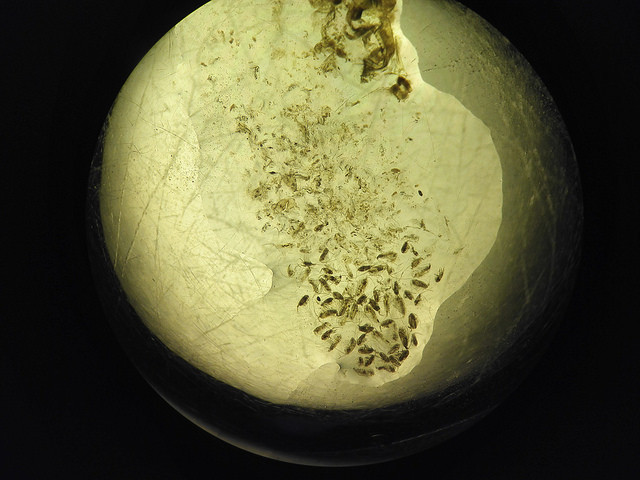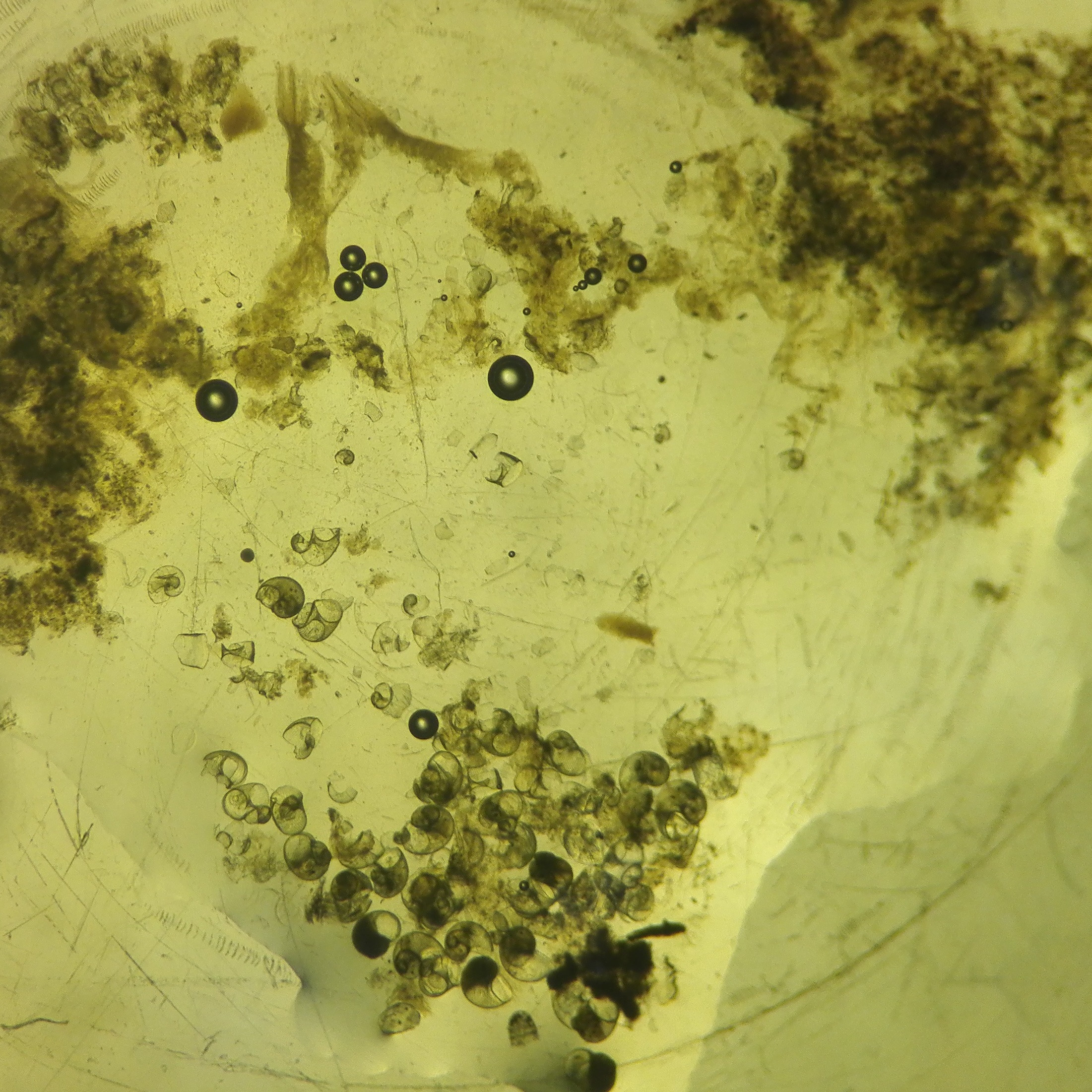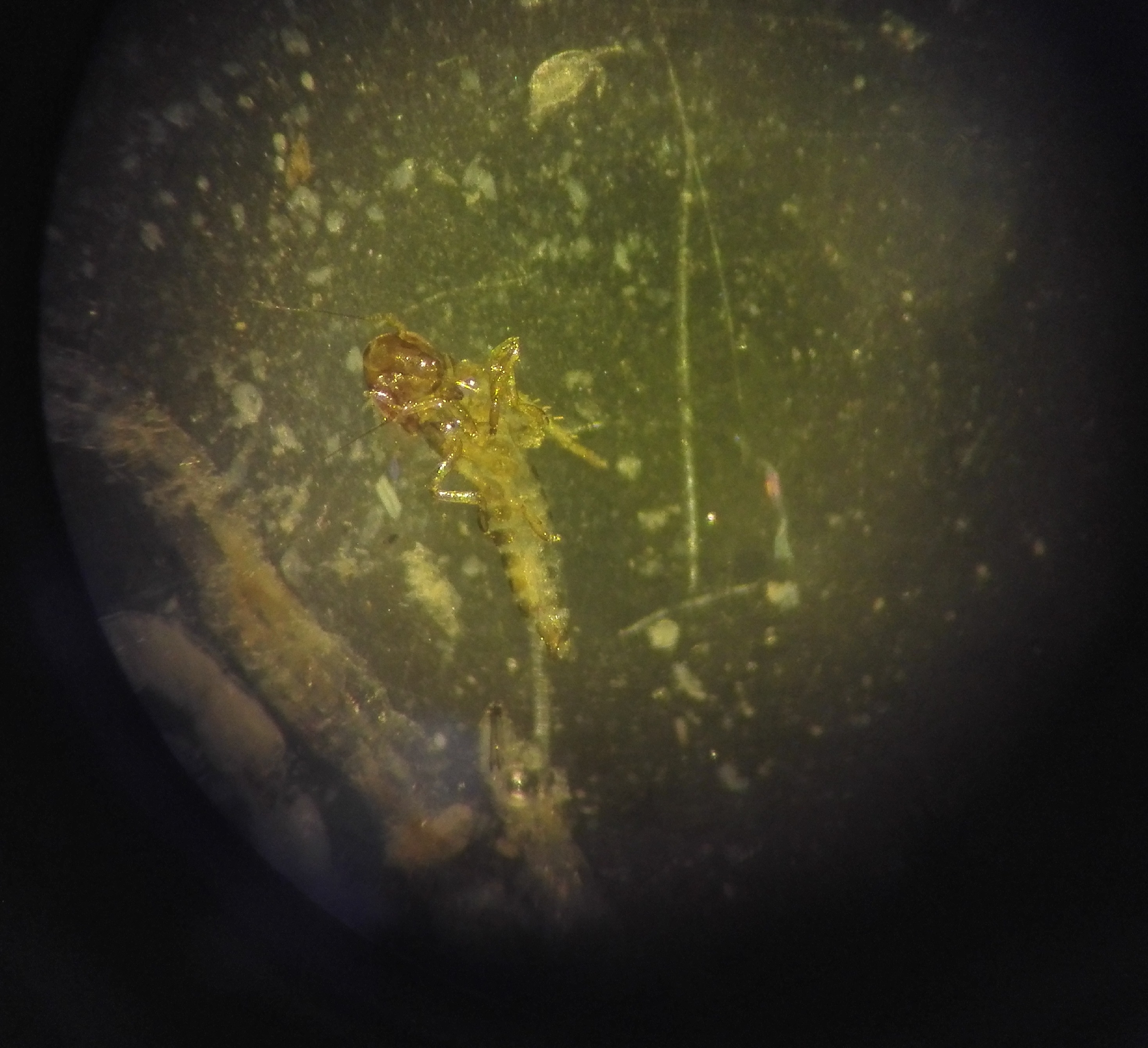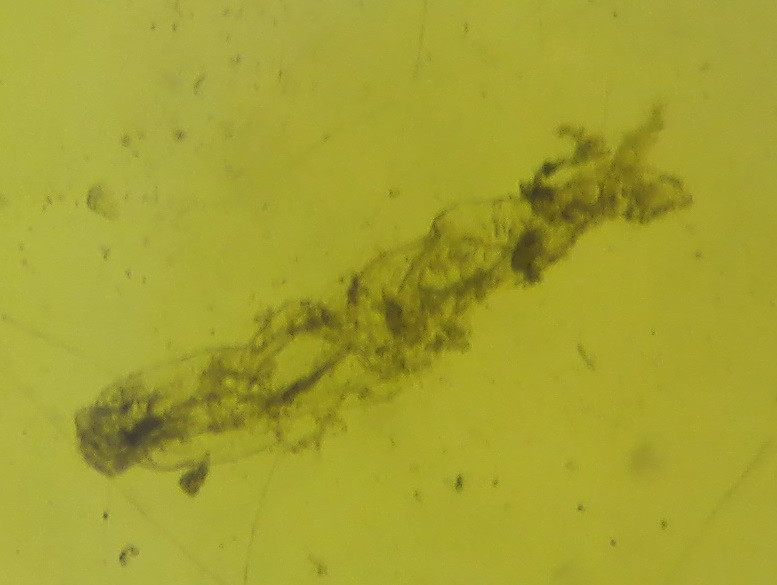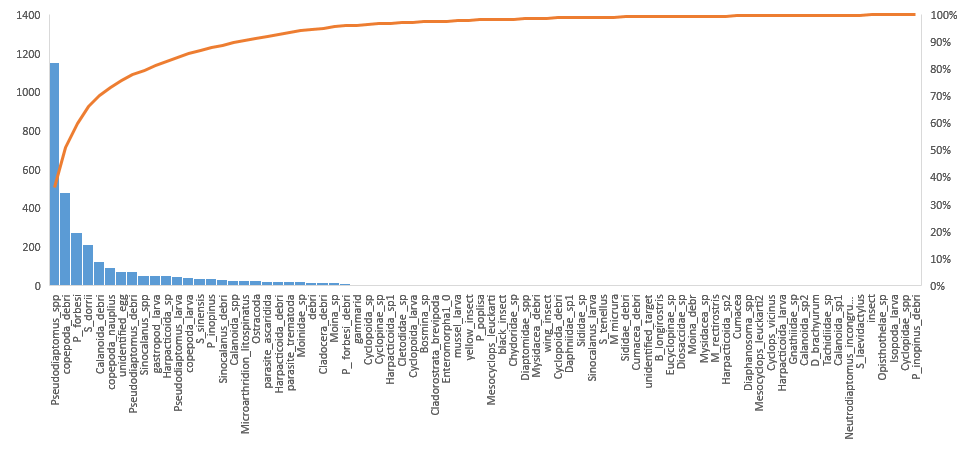Gut contents of larval fishes in surf zone of the Yangtze River Estuary
Introduction
Since 2003 in Zhong's lab, year-round larval fishes surveys have been conducted in the surf zone of Yangtze River Estuary. For these years, Coilia nasus, Pseudolaubuca sp. and Hemiculter sp. dominated the assemblage of larval fishes in south branch of Yangtze River Estuary. I always wondered how did these larval fishes co-exist in such shallow water body. Usually, limited space implies potential competition and restricted accessibility to food. According to Hjort's critical period hypothesis, accessibility and quality of food are essential in larval fishes survival. Hence, to obtain further understanding regarding the various processes in the early life history of fishes, I launched this survey to investigate the feeding habits of co-occurred larval fishes in the surf zone of Yangtze River estuary.
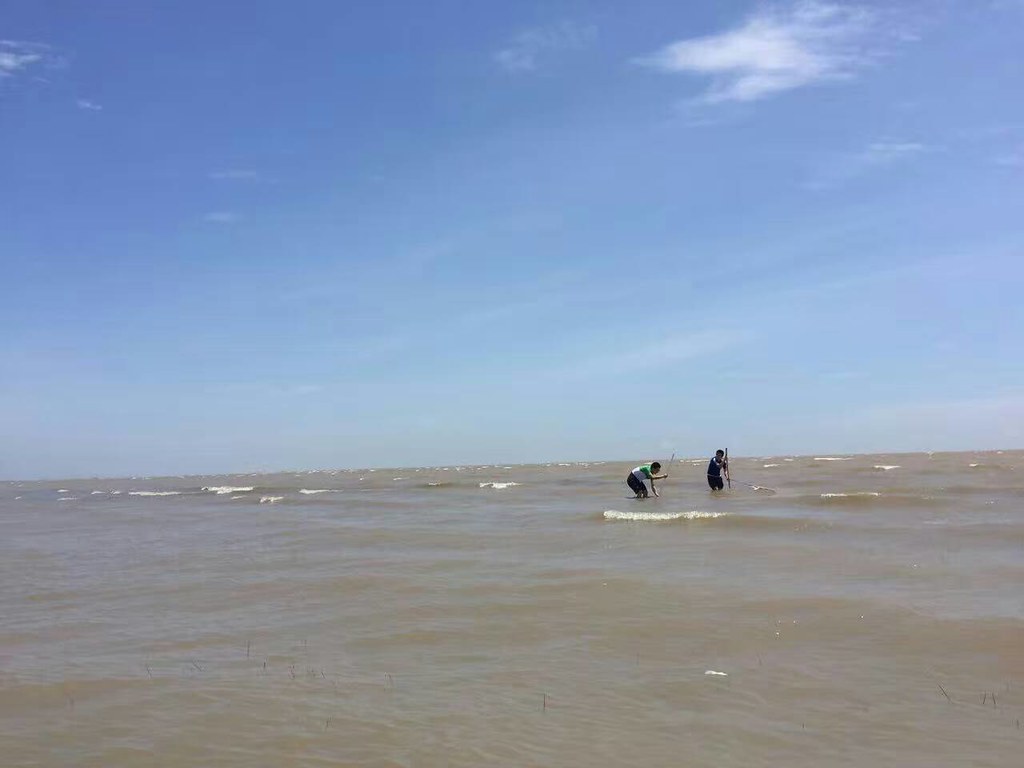
Field Work
This survey lasted from April to September 2016 in Chongming Dongtan Birds National Natural Reserve. Larval fishes were captured by a 4m*1m seine net with 1 mm mesh. Planktons were collected by a small plankton net(mesh size 0.1mm). During each field work, three duplicate larval fishes samples were all reserved by absolute ethanol, while two duplicate plankton samples were reserved by absolute ethanol and 5% formalin respectively. All samples were kept in an incubator filled up with ice packs before taken back to the lab.
Notes
YRef4-10
sample id: YRef4-10 fish: Lateolabrax maculatus fish size:20.00mm SL object description: a lump of partially digested Sinocalanus spp. digestive tract of L. maculatus dissected digestive tract partially digested gut content...
Continue readingYRef9-11
sample id: YRef9-11 fish: Pseudolaubuca engraulis fish size:18.46mm SL object description: a) maybe a new kind of parasite, b) a significant number of young gastropod a b...
Continue readingYRef9-10
sample id: YRef9-10 fish: Periophthalmus magnuspinnatus fish size:13.6mm SL object description: various objects...
Continue readingYRef7-41 unidentified target
sample id: YRef7-41 fish: Pseudolaubuca engraulis fish size:13.50mm SL object description: @#@¥#%¥……...
Continue readingData
halfway…3000+ objects from gut contents
102 larval fishes (approximate two-thirds of the planned morphological samples) have been dissected, and their gut contents were examined thoroughly by Lu. 3193 objects were classified into 78 unadjusted categories. The most common food were copepods of genus Pseudodiaptomus, which were also the most dominant species in plankton assemblage of the survey location....
Continue reading